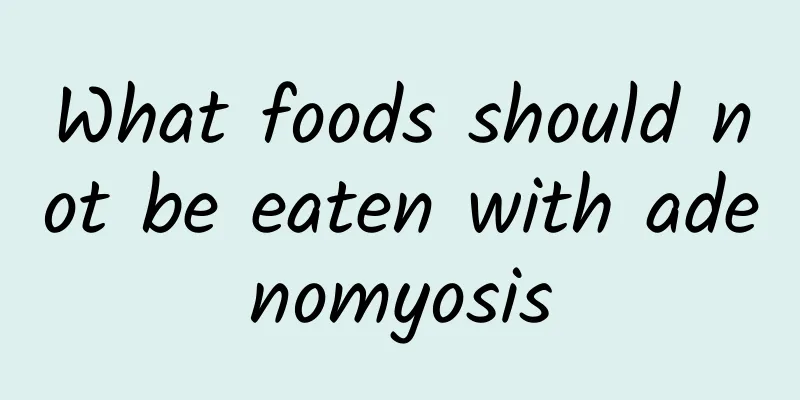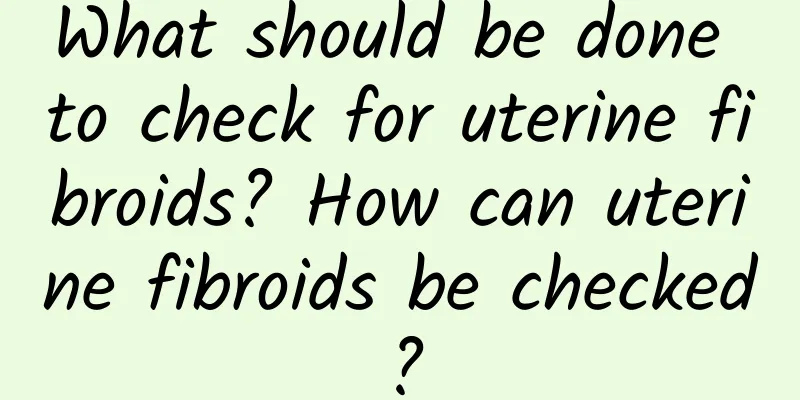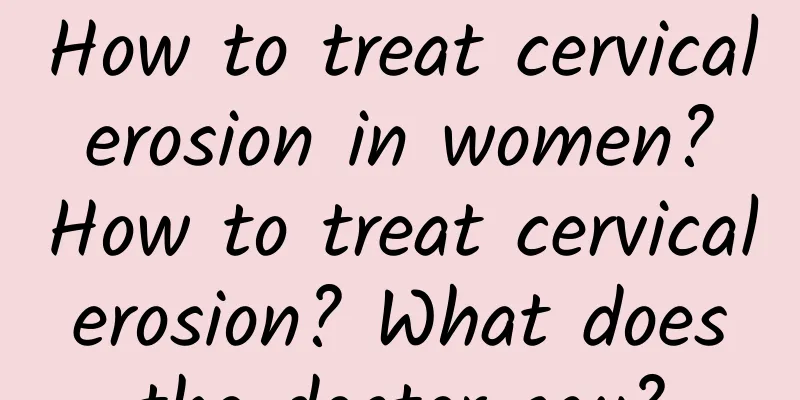What foods should not be eaten with adenomyosis

|
Patients with adenomyosis should avoid high-hormone foods, irritating foods, and high-fat and high-sugar foods. These foods may aggravate hormone disorders in the body, stimulate the growth of the endometrium, and lead to worsening symptoms. A balanced diet and anti-inflammatory foods can help relieve discomfort. 1Avoid high-hormone foods Abnormal progesterone and estrogen levels are the key to the onset of adenomyosis. Foods containing natural estrogen may disrupt the hormone balance in the body. For example, soy products such as soy milk and tofu contain phytoestrogens, isoflavones. Although they are generally considered healthy foods, patients with adenomyosis need to be cautious in consuming them in moderation. 2. Reduce the intake of stimulating foods Caffeine, alcohol, and spicy foods may aggravate pain or cause inflammatory reactions. Studies have shown that coffee increases estrogen levels in the body, so caffeinated drinks such as coffee and strong tea should be consumed in moderation or avoided. At the same time, stimulating spices such as chili peppers may cause abnormal contractions of the uterus and increase discomfort. 3. Limit high-fat and high-sugar foods High-fat foods can easily increase the level of inflammation in the body and stimulate abnormal hormone secretion. For example, fatty meat and fried foods. In addition, high-sugar foods such as cakes and desserts can easily lead to insulin resistance, which may further contribute to the rise in estrogen levels, thereby aggravating the symptoms of adenomyosis. 4 Healthy Eating Tips Patients can choose foods with anti-inflammatory effects, such as deep-sea fish rich in omega-3 fatty acids, whole grains, and fresh fruits and vegetables. Green leafy vegetables and foods rich in vitamin B and magnesium may help relax muscles and relieve pain. Drinking enough water every day can also help adjust the body's metabolism. A balanced diet and avoiding unfavorable food intake are important parts of daily management of adenomyosis. If symptoms are severe or unbearable pain occurs, it is recommended to seek medical attention for a targeted treatment plan. Comprehensive drug and non-drug interventions can improve the quality of life. |
<<: How to diagnose endometriosis
>>: How do you get a Bartholin's gland cyst?
Recommend
What medicine is best for pelvic inflammatory disease?
The choice of treatment drugs for pelvic inflamma...
Do you always fail in your weight loss efforts? Do the 8 steps to adjust your autonomic nervous system and avoid obesity
Why do I always fail in my attempts to lose weigh...
Lin Chi-ling's Chinese medicine for skin care and anti-edema is different for upper and lower parts
"Taiwan's No. 1 supermodel" Lin Chi...
Princess Kate's postpartum anorexia nutritionist: Too thin is dangerous
According to media reports, Britain's Princes...
You won’t gain weight by eating at noodle shops or braised food stalls! Eliminate high-calorie food mines
If you want to lose weight successfully, in addit...
What are the common treatments for ectopic pregnancy?
The treatment of ectopic pregnancy generally requ...
Further discussion on precautions after abortion
I believe everyone should be familiar with aborti...
What does a weak positive ovulation test paper mean before menstruation?
Normal women of childbearing age have menstruatio...
Experts' overview of the causes of ectopic pregnancy
Nowadays, many women have ectopic pregnancies, an...
What medicine to take for cervicitis
What are the symptoms of cervicitis? Abnormal leu...
Causes of recurrent attacks in patients with Bartholinitis
What is the reason for the recurrence of Bartholi...
What causes pelvic effusion?
Pelvic effusion refers to the accumulation of exc...
Abnormal leucorrhea, what's wrong?
What’s wrong with abnormal leucorrhea? The causes...
What are the side effects of Xiaojie'an Capsules? Will Xiaojie'an Capsules aggravate the symptoms of uterine fibroids?
Do patients who use drugs such as Xiaojie'an ...
Why are elderly people more prone to vaginitis?
Vaginitis is a common disease among women and can...









